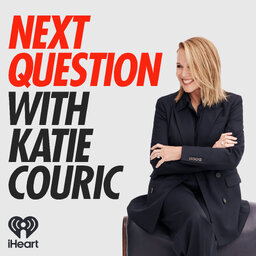How do you have a baby during a pandemic?
Hospitals in hotspots like New York City may have postponed or canceling non-essential surgeries due to the coronavirus, but, you can’t postpone birth. Pregnant mothers are still entering hospitals, sometimes alone, to deliver babies to doctors and nurses in full hazmat gear. On this episode of Next Question with Katie Couric, Katie finds out what it's like — from the perspective of mothers, doctors, and doulas — to give birth in the time of coronavirus.
First, Katie talks to Alicia Biggs, a mom who had to give birth alone at the end of March. Then, Katie checks in with two obstetricians, one from New York Presbyterian in Manhattan and one from the Elmhurst Hospital Center in Queens, to understand the obstacles they face in keeping pregnant and laboring moms healthy and safe. Finally, New York City doula Chantal Traub offers tips to pregnant women and their partners for how to feel safe — and empowered — during a time of uncertainty. Next Question listeners can go to ChantalTraub.com to get their free guide for how to enter birth with confidence and calm. For more, subscribe to Katie's morning newsletter Wake-Up Call at KatieCouric.com.
Learn more about your ad-choices at https://www.iheartpodcastnetwork.com
 Next Question with Katie Couric
Next Question with Katie Couric


